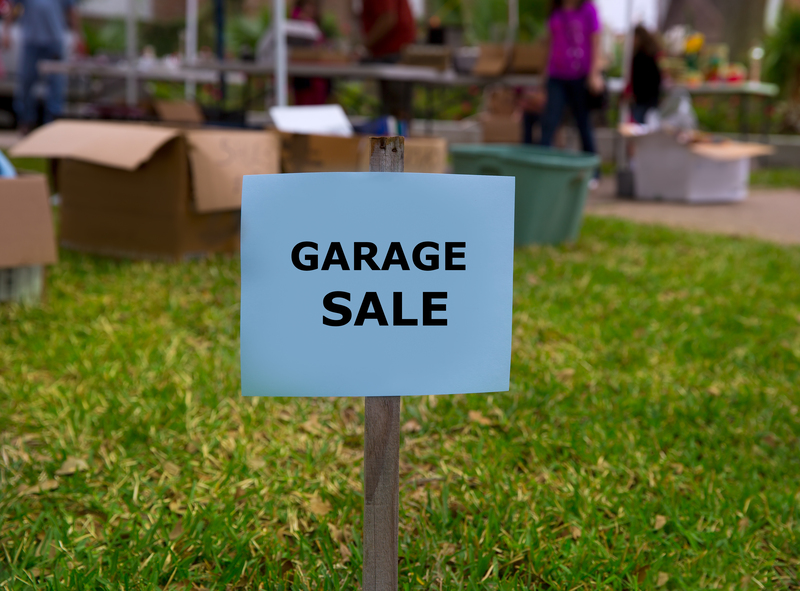How to Dispose of Bulky Waste Items Without Breaking the Bank
Getting rid of large, unwanted items can be stressful, especially when you're on a budget. Whether it's old furniture, appliances, mattresses, or garden debris, dealing with bulky waste often overwhelms homeowners and renters alike. Fortunately, there are affordable ways to dispose of bulky waste items responsibly. In this comprehensive guide, we'll show you thrifty and environmentally friendly methods to get rid of large household junk without spending a fortune.
Understanding Bulky Waste: What Qualifies as Bulky Trash?
Before figuring out how to dispose of large waste items cheaply, it helps to know what qualifies as bulky waste. Typically, bulky waste items are goods or materials too large for normal curbside trash pickups.
- Furniture: Couches, sofas, chairs, bed frames, wardrobes, dressers, and tables.
- Appliances: Washing machines, dryers, ovens, refrigerators, freezers, and microwaves.
- Mattresses & Box Springs: Old beds and bed bases.
- Garden Waste: Large tree limbs, branches, shrubs, and bagged grass clippings (in bulk).
- Electronic Waste: Televisions, computers, printers, and other bulky electronics.
- Miscellaneous: Carpets, toilets, sinks, hot tubs, exercise equipment, and more.
Now that you have a sense of what counts as bulky refuse, let's explore the most economical ways to get rid of it.

Cheap or Free Methods for Bulky Item Disposal
Disposing of bulky waste without breaking the bank often involves a blend of resourcefulness and community engagement. Here are the top options for cost-effective junk removal:
1. Utilize Your Local Council's Bulky Waste Collection Services
- Many local councils or municipalities offer: Scheduled bulky item pick-up days for free or a nominal fee.
- How it works: Residents can place eligible items at the curb on designated dates or request a special collection.
Check your city or rural authority's website for details about:
- How often bulky waste is collected
- Types of items accepted
- Any associated costs (Some areas allow 1-2 free pickups per year!)
Tip: Book early, as collection slots may be limited, especially during spring cleaning season.
2. Visit Your Local Recycling or Waste Transfer Centers
- Recycling centers, also known as Household Waste Recycling Centres (HWRCs): Often accept many types of large waste for free or a small charge.
- Accepted items: Furniture, mattresses, scrap metal, wood, some appliances, garden refuse, and more.
Pro Tip: Sort your waste by material (metal, wood, fabric) beforehand for faster and sometimes cheaper drop-offs.
3. Book a Charity or Nonprofit Pickup Service
Many charities accept certain bulky items in good condition and may collect them for free.
- Commonly accepted items: Furniture, working appliances, beds, and electronics.
- How to arrange: Contact local branches of organizations like Habitat for Humanity, The Salvation Army, Goodwill, or your local community charities.
Benefits:
- Free pickup in many cases
- Items get a second life and support those in need
- Eco-friendly solution
Remember: Make sure items are clean and in usable condition! Non-working or damaged goods may not be accepted.
4. Try Online Marketplaces or Community Platforms
You'd be surprised how many people are willing to pick up items--even if free!
- Post your unwanted items for free (or for a small fee) on:
- Facebook Marketplace
- Craigslist (in the "Free" section)
- Freecycle
- Nextdoor
Tips for success: Take clear photos, give accurate measurements, and be honest about item condition. "Curb alert" posts (leave it outside, first-come-first-served) are especially effective for old furniture and scrap wood.
5. Arrange Appliance or Mattress Takeback with Retailers
If you're replacing a big item, retailers often offer free or low-cost removal of your old goods when delivering new ones.
- Major appliance stores, mattress chains, and furniture outlets: Ask about their removal policies when you buy.
- Some companies recycle responsibly, keeping your carbon footprint minimal.
6. Take Advantage of Community Cleanup Days
- Local councils, schools, or businesses sometimes host community cleanup events where residents can drop off large junk for free or at a discount.
- Check social media, community bulletin boards, or your city's website for upcoming dates.
Bonus: These events often recycle much of what's collected!
Low-Cost Bulky Waste Disposal Alternatives
If free or self-service options aren't possible, here are some low-cost strategies to dispose of multiple bulky items affordably:
1. Share a Dumpster or Skip Bin With Neighbors
- Renting a skip can be pricey alone, but splitting rental fees with neighbors makes it far more affordable.
- Great for apartment complexes, HOAs, or neighborhood clean-up days.
2. Use "Man with a Van" or Local Junk Haulers
- Small, independent operators may offer competitive rates--especially if you have just a few items.
- Get quotes from several companies and check reviews for reliability and environmental practices.
3. DIY Hauling - Borrow or Rent a Trailer/Truck
- If you have access to a vehicle (or borrow/rent one for a day), you can take multiple items to the dump or recycling center in one trip, saving on pickup costs.
- Ask friends and family to share the haul or cost of rental.
4. Look for Nonprofit Recycling Initiatives
- Certain electronics, mattresses, and furniture items are collected for recycling by nonprofits or local government-supported initiatives for a small fee.
- Check websites like Earth911 or your local government sustainability office for leads.
Tips for Saving Money When Disposing of Bulky Items
- Plan ahead: Organize all your unwanted bulky waste for one pickup to avoid multiple fees.
- Disassemble where possible: Breaking down furniture or appliances into smaller parts sometimes reduces the disposal fee--or enables reuse of materials.
- Bundle with neighbors: Coordinate disposal days for your street or building to negotiate discounts from hauling companies.
- Reuse or repurpose: Some wooden, metal, or fabric items can become DIY projects for your home or garden, saving you the cost of disposal altogether.
- Ensure correct sorting: Some centers charge less for separated (e.g., metal, wood) or recyclable items vs. mixed waste.
What You Shouldn't Do When Disposing Bulky Waste
It can be tempting to save money through shortcuts, but certain practices are illegal, hazardous, or damaging to the environment.
- Never: Fly-tip (illegally dump) bulky items in public spaces or on the roadside. This carries fines and criminal penalties.
- Don't: Burn mattresses, furniture, or treated wood, which can release toxic fumes and pollutants.
- Avoid: Putting electronics with regular waste; many contain hazardous materials and require special disposal.
- Refrain from: Disposing of appliances with refrigerants (fridges, freezers, AC units) without proper degassing.
The Environmental & Community Benefits of Responsible Bulky Waste Disposal
Disposing of large household items responsibly does more than save you money--it has vital environmental and social benefits:
- Reduces landfill usage and pollution
- Promotes recycling and resource recovery
- Supports charitable causes and those in need
- Creates cleaner neighborhoods free from illegal dumping
- Encourages a culture of reuse and repair
Summary: Cost-Effective Solutions for Bulky Waste Removal
There's no need to overspend on bulky waste disposal. By exploring all the available options--free council pickups, recycling centers, charity donations, community marketplaces, retailer takebacks, recycled material drop-offs, and shared hauling services--you can find an affordable way to remove bulky junk that fits your budget and schedule.
To recap, the most budget-friendly ways to dispose of large trash items include:
- Booking local council or municipal collection services
- Dropping off at community waste and recycling centers
- Donating usable items to charity or giving away via online platforms
- Bundling bulk disposals with neighbors for discounts
By taking a little time to research and plan, you can minimize both your disposal costs and your environmental footprint. With these tips, disposing of bulky items doesn't have to break the bank--or the planet.

Frequently Asked Questions: Bulky Waste Disposal on a Budget
Q: What items are usually accepted for free bulky waste collection?
Most councils accept furniture, mattresses, carpets, large appliances, and garden waste. Regulations vary, so always check your local authority's rules.
Q: How can I get rid of old sofas or beds for little or no money?
Try local charity pickups, post a free ad on an online marketplace, or wait for council bulky item collection days. Many people will take beds or sofas for free if still usable.
Q: Is it cheaper to hire a dumpster or use a junk removal service?
Dumpster rental can save money if you have many items or can share with neighbors. For just a few items, "man with a van" style haulers may be less expensive.
Q: What's the best way to recycle or reuse bulky waste?
Donate usable furniture and appliances, recycle metals, repurpose lumber or fabric for DIY projects, and use recycling centers for electronics and white goods.
Disposing of Bulky Waste Items Don't Have to Cost a Fortune
With smart planning, community resources, and a focus on sustainability, you can dispose of bulky household items affordably and responsibly. Choose the solutions that best fit your needs, and remember--your options often extend beyond simply throwing things away!